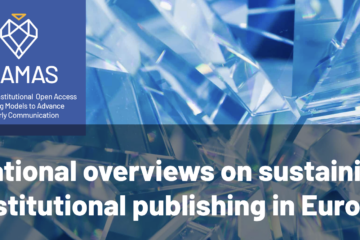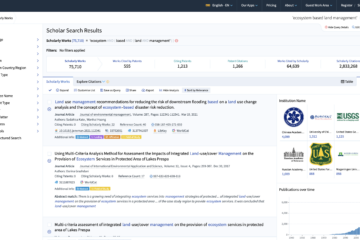Mentoring at Open Science Fellows Program
Towards the end of September, the Open Science Fellows Program will enter its third round at Wikimedia Germany. Once again, 20 scientists will be supported in making their scientific research and teaching open and thereby contributing to the promotion of Open Science. An integral part of the program is the mentoring component: two Fellows are closely advised and supported by an expert in Open Science throughout the implementation of their projects. Over the years, the mentoring team has grown from an initial five to now ten mentors to meet the increased number of projects to be supported.
Following is part of an interview published in German on the Wikimedia Germany blog introducing Jo Havemann as a new mentor to the program:
What motivated you to become a mentor and thus part of the program? What are you looking forward to?
The Open Science Fellows Program with its versatility in projects and the relatively high number of Fellows in each program year is – to my knowledge – so far unique in Germany and has already produced some exciting open science projects and results, such as Open Electricity Economics, Open Organizing and Public Sector Knowledge Sharing.
Now that the fellows of the third program year are known, I am looking forward to the exchange, the discussions and the joint tinkering on the projects together with the fellows and mentors. I was able to get to know the other mentors and I am glad to be part of the team.
You have been involved in various projects dealing with Open Science for a while – even outside of Europe. What does Open Science mean to you and how is this reflected in your daily work?
In my trainings at universities and graduate schools I emphasise again and again how important transparency and open access is in science to make the economy, medical services and thus society more effective and efficient. This applies to individual municipalities and regions within Germany, nationwide, and ultimately also to the global society. The elephant in the room is evidently the ongoing climate change, as well as related global challenges and issues such as migration, environmental degradation, single nation economics, and conflict resolution. These topics are only partially separable; which is why transparent data collection and the utilisation of research results in our digital age are not only possible, but also urgently needed.
Direct access to scientific results also allows for the convergence of the global scientific community. Researchers in Africa, Latin America and Southeast Asia now have the opportunity to find up to date research results through online publishing systems, databases and scientific service providers (Zotero, Figshare, Preprint repositories, DOAJ, Zenodo, Dryad, etc.) make their own research output more visible and build more transcontinental collaborations.
Anything else you would like to add?
I am curious to see what we will achieve together in the coming program year and what impact the submitted projects are going to have in Germany and internationally. The growing network of program alumni offers numerous links for greater transparency in Science.
About the Open Science Fellows Program
The Open Science Fellows Program is a joint project of Wikimedia Deutschland, the Stifterverband, and the Volkswagen Foundation. It is aimed at doctoral students (m/f), post-docs (m/f), and junior professors (m/f) who want to promote their research in an open manner. As scientific partners, the Technische Informationsbibliothek (TIB), the Museum für Naturkunde Berlin, the Center for Digital Systems (CeDiS) of Freie Universität Berlin and the Göttingen State and University Library are participating in the program by offering a range of training opportunities. […]
Read more at en.wikiversity.org/wiki/Wikimedia_Deutschland/Open_Science_Fellows_Program



